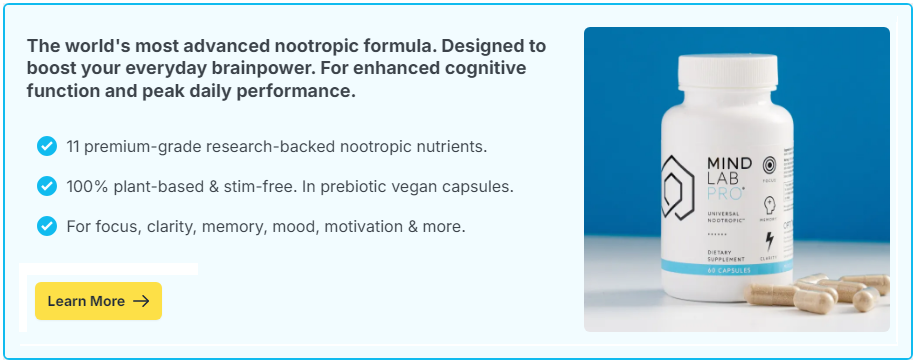
Have you ever wondered why some people seem to see a world brimming with possibilities, while others appear to have a more narrow focus? It often seems like some individuals have an innate ability to think outside the box, consider new ideas, and remain open to diverse possibilities. But what really drives this open-minded thinking? Interestingly enough, the answer might lie within our very own brains and the chemicals coursing through them.
Contents
The Power of Open-Minded Thinking
Open-minded thinking is the ability to consider different perspectives, entertain new ideas, and be willing to change one’s mind when presented with new evidence. It isn’t just about being agreeable or accepting, but rather about having the cognitive flexibility to adapt thoughts and beliefs in light of new experiences.
This kind of thinking can lead to a variety of benefits. People who are more open-minded often experience:
- Better problem-solving abilities
- Enhanced creativity
- Increased adaptability
- Stronger problem-solving skills
But where does this open-mindedness originate? The answer resides deep within our brain’s chemical and structural makeup.
Understanding Brain Chemistry
To comprehend open-minded thinking, we need to take a closer look at the brain’s chemistry. The brain contains billions of neurons that communicate via chemical messengers known as neurotransmitters. These neurotransmitters are crucial for transmitting signals across the brain, influencing everything from mood to perceptive abilities.
Here are some key neurotransmitters that play a vital role in open-minded thinking:
Dopamine: The Motivation Molecule
Dopamine is often called the “motivation molecule” for good reason. It plays a crucial role in the brain’s reward and pleasure centers, helping us to feel motivated and enthused. High levels of dopamine make individuals more curious and driven, which can lead to a thirst for new experiences and open-minded behavior.
Serotonin: The Mood Balancer
Serotonin is another important player that influences mood and social behavior. Balanced levels of serotonin can help individuals maintain a positive outlook, which is essential for remaining open to new possibilities. On the contrary, low serotonin levels can be linked to anxiety and depression, conditions that can shrink one’s willingness to embrace the unknown.
Norepinephrine: The Attention Enhancer
Norepinephrine helps to enhance attention and response actions in our brains. It’s like an alert signal that heightens our perception. This neurotransmitter influences our attention span and the capacity to face new situations with interest. When in balance, it contributes to why some people can remain composed and tackle new challenges creatively.
Structural Differences in the Brain
Besides brain chemistry, structural aspects of the brain also play a pivotal role. Specifically, the prefrontal cortex, which is located at the front of the brain, is associated with decision-making, personality expression, and moderating social behavior. It’s the part of our brain that gets involved when considering complex ideas and different viewpoints.
In individuals who are more open-minded, the prefrontal cortex tends to be more active and better connected with other parts of the brain. This active regional network allows them to assess, reflect on, and consider various possibilities.
Environmental and Genetic Factors
While brain chemistry and structure are crucial, environmental and genetic factors cannot be ignored. The brain’s ability to see possibilities isn’t entirely hardwired at birth; it can be shaped by one’s surroundings and experiences.
Environmental Influences
People raised in environments that value diversity, creativity, and critical thinking are more likely to develop an open-minded approach to life. Exposure to different cultures, ideas, and challenges early in life encourages the brain to strengthen its neural connection, fostering a more curious and flexible mind.
Genetic Influences
Research also indicates that genetics can influence how open-minded a person is. While specific genes have been linked to traits like openness to experience, it’s a complex interplay of multiple genetic factors that contribute to this trait. However, it is essential to understand that genes are not destiny—environment and experience can significantly modulate genetic predispositions.
Steps to Enhance Open-Mindedness
Even if you’re not naturally inclined to be an open-minded thinker, there are ways to enhance this trait. Just like exercising a muscle, the brain can be trained to develop a broader perspective and embrace potential.
- Practice Self-Reflection: Regularly reflecting on your beliefs and assumptions can help you identify biases or limitations in your thinking.
- Expose Yourself to New Experiences: Challenge yourself by stepping outside your comfort zone, whether it’s through travel, reading diverse genres, or meeting new people.
- Engage in Thoughtful Conversations: Engaging with others who have different viewpoints encourages perspective-taking and cognitive flexibility.
- Embrace Mental Challenges: Activities that stimulate the brain, like puzzles or learning a new skill, can strengthen the connections involved in open-minded thinking.
The Role of Brain Supplements
In recent years, the popularity of brain supplements, often referred to as “nootropics,” has surged. These supplements, which can range from vitamin and mineral blends to herbal extracts, are touted for their potential to enhance cognitive function, memory, and even open-minded thinking.
Many brain supplements are formulated to support the production and balance of crucial neurotransmitters like dopamine, serotonin, and norepinephrine. These compounds may help maintain optimal brain chemistry, contributing to improved mood, motivation, and cognitive flexibility.
Popular Brain Supplements
Some of the most popular supplements aimed at supporting brain health and cognitive functions include:
- Omega-3 Fatty Acids: Commonly found in fish oil, omega-3s are essential for brain health and have been linked to improved mood, memory, and reduced inflammation.
- Ginkgo Biloba: Derived from the leaves of the Ginkgo tree, this supplement is believed to enhance cognitive function and improve circulation, potentially supporting an open mind.
- Curcumin: The active compound in turmeric, curcumin has anti-inflammatory properties and is believed to support cognitive function.
- Bacopa Monnieri: A traditional Ayurvedic herb that may support cognitive function and memory, helping to enhance one’s ability to embrace new ideas.
- Rhodiola Rosea: Known for its adaptogenic properties, this herb is used to promote mental clarity and reduce fatigue, thus fostering a more resilient and adaptable mind.
Seeing a world full of possibilities is not just a talent that some are born with; it’s an ability that can be enhanced through understanding and purposefully altering the chemistry and structure of our brains. Whether by balancing neurotransmitters, encouraging structural changes, or shaping our environments, we can all work toward seeing more possibilities in every aspect of life.

